Sometimes one is hurt by the behaviour of others. One is amazed and searches for the reasons. The reasons sometimes do not show up and leads to further confusion and frustration.
Have you been in the above situation? If you ever had been in this, your search for reasons ends right here!
Introduction
Robert Greene is the author of 5 international best-selling books. The 48 Laws Of Power was his first book which played an important role in his writing career. Greene had to face many controversies because of his book. We have already published the best summary of The 48 Laws Of Power on our site.
In “The Laws of Human Nature” by Robert Greene, you’ll come across 18 life-changing laws that will help you understand human nature, why people act the way they do, and how to remain vigilant.
It gives us the lowdown on how to behave and, most importantly, how to work. In other words, it is highly inspirational and insightful. Therefore, it’s safe to say that “The Laws Of Human Nature” is prescribed for a wider audience.
1. The Law of Irrationality
Cultivating Rationality: Three Steps to Overcome Emotional Biases
In decision-making, our emotional attachments often overshadow rationality, influencing our perceptions of the world.
However, developing a rational mindset is not an innate ability that can be inherited or quickly adopted. It requires deliberate cultivation to maximize its effectiveness.
Step 1: Recognizing Biases
The first step towards rationality involves recognizing the biases that impact our decision-making. Several tendencies warrant particular attention, including confirmation bias, conviction bias, appearance bias, group bias, blame bias, and superiority bias. By becoming aware of these biases, we can more objectively navigate our thoughts.
Step 2: Identifying Inflaming Factors
To foster rationality, it is crucial to be mindful of factors that trigger emotional intensity. Childhood triggers, sudden gains or losses, rising pressure, inflaming individuals, and the influence of group dynamics can all contribute to emotional biases.
By being aware of these factors, we can consciously counter their effects and maintain a more rational perspective.
Step 3: Strategies for Cultivating Rationality
To nurture our rational selves, we can adopt several strategies:
- Complete self-awareness: Understanding ourselves deeply enables us to recognize our emotional patterns and triggers.
- Examining emotional roots: Digging beneath trigger points helps us identify the origins of our emotions, allowing for more rational responses.
- Increasing reaction time: Training ourselves to step back and take a moment before reacting can reduce impulsive, emotional responses.
- Accepting people as facts: Viewing others as phenomena rather than sources of emotional turmoil helps maintain objectivity.
- Balancing thinking and emotion: Striking an optimal balance between skepticism and curiosity promotes rational decision-making.
- Embracing rationality: Taming our emotional selves leads to inner calmness and clarity, facilitating the cultivation of rationality.
Following these three steps and implementing the suggested strategies, we can embark on a journey towards cultivating rationality.
Recognizing biases, identifying inflaming factors, and actively engaging in self-reflection will help us overcome emotional biases and develop a more rational mindset. Embracing rationality enhances decision-making and fosters a sense of tranquility and clarity in our lives.
2. The Law of Narcissism
We are all narcissistic, at least to some degree. It would help if you redirected that self-appreciation outward to lower people’s resistance when introducing your plan.

On top of that, pay heed to narcissists who are either passive or active aggressors and want to drag you into their endless drama. Beware of their hidden intentions and envy. This is one of the best advice in the book “The Laws of Human Nature”.
In the narcissistic spectrum, we must be honest about our nature and not deny it. We are all narcissists. We need to develop our empathy; to do this, we need to create four skills:
- The empathetic attitude: You must begin with the assumption that you are ignorant. Learn to be curious about other people’s points of view.
- Visceral empathy: Pay attention to moods, as indicated by body language and tone of voice. Mirroring people will also help draw out an empathetic response.
- Analytic empathy: Gather as much information about the early years of the people you are studying and their relationship to their parents and siblings.
- The empathetic skill: To work on this skill, keep several things in mind: the more people you interact with in the flesh, the better you will get at this. And the greater the variety of people you meet, your skill will become more versatile.
3. The Law of Role-Playing
You don’t need anyone telling you that people love to wear masks, one for each occasion, metaphorically speaking.
Nonetheless, they often reveal their true intentions through non-verbal cues such as facial expressions, body posture, and nervous gestures. By spotting these signs of insecurity, you’ll be able to outmaneuver and be one step ahead of them at all times.
The Art of Impression Management
- Master the nonverbal cues: Radiate confidence, flash genuine smiles, and mirror the people you deal with.
- Be a method actor: Learn to put yourself in the right emotional mood consciously.
- Adapt to your audience: Shape your nonverbal cues to audience style and taste.
- Create the right first impression: Give extra attention to your first appearance before an individual or group.
- Use dramatic effects: Make your appearances and behavior less predictable.
- Project saintly qualities: Be progressive, tolerant, and open-minded.
4. The Law of Compulsive Behavior
Understanding people’s character can be a complex task. It forms the foundation of repetitive patterns in their lives. In other words, individuals often repeat the same behavior throughout their lifetime.
Remembering this and developing an affinity for those who display strength and courage is essential. Being aware of your negative patterns can effectively distance yourself from toxic individuals. Please do so to allow this law to overpower you.
When selecting individuals to work and associate with, avoid being captivated solely by their reputation or the superficial image they present. Instead, train yourself to delve deeper and discern their true character. This is a crucial aspect of “The Laws of Human Nature” book.
Assess the strength of their character based on how well they handle adversity, their ability to adapt and collaborate with others, and their patience and capacity for learning. A person with solid character is akin to rare and invaluable gold. They possess the ability to adapt, learn, and continually improve themselves.
5. The Law of Covetousness
It is a curious phenomenon that humans often yearn for what seems just out of reach as if the grass is always greener on the other side of the fence. This philosophical concept highlights our tendency to strive for things that elude our grasp.

You can harness this dynamic to cultivate a sense of mystery around your presence and leverage it to your advantage. By doing so, you can become a beacon of intellectual prowess and garner respect. People are inherently drawn to the unknown, and you can gain the upper hand by playing by these rules.
The interplay between absence and presence has a profound impact on us. Excessive presence can suffocate, while a certain degree of absence sparks intrigue. We are wired to crave what we lack, projecting our desires onto elusive objects as per “The Laws of Human Nature”.
Master the art of creating an air of mystery around yourself, strategically employing periods of absence to make others yearn for your return, to long to possess you in some way. By dangling in front of others what they crave most in life, what they are forbidden to have, you can ignite an irresistible desire within them.
6. The Law of Shortsightedness
Many individuals are easily swayed by recent trends, opinions, and instant reactions, needing more capacity to maintain a long-term vision.
These short-sighted people fail to see beyond the immediate, and keeping a distance from them is wise. Instead, seek out and associate with individuals who possess a long-term perspective and are guided by their goals.
It is natural for our animal instincts to be most influenced by what we can perceive in the present—the latest news, popular trends, opinions, and dramatic events. However, assessing people based on the breadth or narrowness of their vision is essential.
Steer clear of those who cannot comprehend the consequences of their actions and are constantly in reactive mode. Such individuals will only infect you with their shortsightedness. Never lose sight of your long-term objectives. Adopting an elevated perspective will cultivate patience and clarity, enabling you to achieve almost any goal.
To overcome shortsightedness, watch out for four signs and employ strategies to counteract them:
- Unintended consequences: In any group or team, assign someone with a skeptical and prudent mindset to anticipate and assess the potential consequences of strategies or actions.
- Tactical hell: When you find yourself embroiled in multiple battles or conflicts, losing sight of your long-term goals and instead being driven by ego and the need to prove yourself right, it’s crucial to temporarily or permanently withdraw from these battles. Gain detachment and perspective. Let your actions speak for themselves. Reevaluate your long-term goals and create a hierarchy of values and priorities to remind yourself of what truly matters.
- Ticker tape fever: When faced with problems or obstacles, take the time to slow down, step back, and wait a day or two before taking action. Additionally, clearly understand your long-term goals and the strategies required when dealing with critical issues.
- Lost in trivia: If you feel overwhelmed by the complexity of your work and the need to stay on top of every detail and global trend, creating a mental filtering system based on your priorities and long-term goals is crucial. Knowing what you want to accomplish will help you distinguish between essential and nonessential information.
By recognizing these signs of shortsightedness and implementing the corresponding strategies, you can cultivate a steadfast long-term vision and overcome the limitations that hinder your progress.
7. The Law of Defensiveness
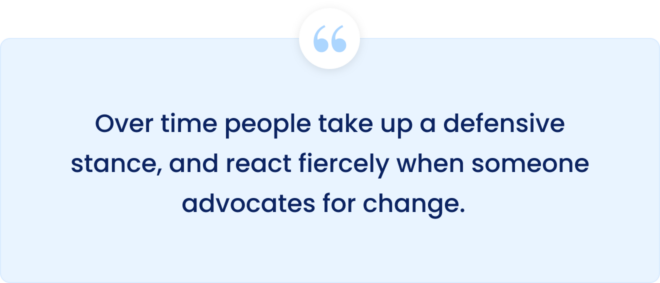
It is evident that as time passes, people tend to adopt a defensive stance and react strongly when confronted with the idea of change. To mitigate their resistance, it is crucial to encourage them to consider altering their perspectives without offending them.
If you aspire to make significant progress toward your goals, it is essential to embrace creativity. Communicate your noble intentions, allowing them to feel in control of their opinions and patterns.
Life can be harsh, and people naturally prioritize their interests. We also have an inherent desire for independence, wanting to pursue our passions. Therefore, when others attempt to persuade or change us, our instinctive response is defensiveness and resistance. This has been stressed in the book “The Laws of Human Nature”.
To guide people away from their defensive positions, it is vital to create an environment where they believe their actions are driven by their free will. Attacking individuals for their beliefs or making them feel insecure about their intelligence or morality is counterproductive, as this will only strengthen their defensiveness and render your efforts futile.
Instead, learn to overcome stubbornness and liberate your mind from defensive and closed positions, unleashing your creative abilities.
By approaching others with empathy, respecting their autonomy, and refraining from personal attacks, you can foster a conducive environment for change. Encourage open dialogue, offer alternative perspectives, and present your ideas in a non-threatening manner.
By empowering individuals to feel in control of their choices, you can gradually break down their defensive barriers and inspire them to embrace new possibilities. Embracing your creativity will further facilitate this process, as it demonstrates the positive outcomes that can arise from embracing change.
Prioritize effective communication and empathy to navigate resistance to change. Create an atmosphere where individuals feel empowered to make choices and actively participate in the transformation.
By taming defensiveness, promoting creative thinking, and approaching others with respect, you can foster an environment conducive to personal growth and collective progress. The book “The Laws of Human Nature” focuses over this.
8. The Law of Self-Sabotage
When you confine yourself to negativity and fear, everyone you interact with will sense your habitual skepticism. Such an attitude diminishes your chances of success and leaves you more susceptible to vulnerability.
While it may sound cliché, maintaining a positive attitude is the crucial bridge between you and success. Nurturing this mindset enables you to extract the best from every situation and perceive opportunities where others see only obstacles.
Each of us possesses a unique lens through which we view the world, interpreting events and the actions of those around us. This lens is our attitude, and it significantly shapes our life experiences. If our attitude is predominantly fearful, we tend to perceive the negative aspects in every circumstance. We hold ourselves back from taking risks, blame others for mistakes, and fail to learn from them.
Unconsciously, we create circumstances that align with our deepest fears, sabotaging our careers and relationships. However, our human attitude is flexible but malleable. We can ignite a transformative dynamic by consciously cultivating a more positive, open, and tolerant attitude towards others.
We can learn and grow from adversity, create opportunities even when they seem absent, and naturally draw people towards us.
It is essential to recognize that your attitude is within your control. Shifting towards a positive mindset unleashes a powerful force within yourself. Embrace optimism, seek lessons in challenges, and adopt a proactive approach to life as per the book “The Laws of Human Nature”.
Rather than dwelling on the negative, actively focus on finding solutions and seizing opportunities. Through this deliberate choice, you enhance your personal growth and attract like-minded individuals and favorable circumstances.
Your attitude profoundly influences your experiences and interactions. Embracing positivity, openness, and tolerance enables you to navigate life more resilient and prosperous.
By transforming your mindset, you can learn from adversity, create opportunities, and attract the people and situations that align with your aspirations. Embrace the power of a positive attitude, and witness the remarkable transformations it can bring.
9. The Law of Repression
People often hide their true selves, concealing the darkness within their hearts. Before embarking on a journey to observe the pervasive ignorance around you, it is essential to acknowledge and understand your shadowy urges.
By integrating your enigmatic side into your personality, you can attain a vantage point from which you can act as a keen observer. This transformative action plays a crucial role in your ability to attract others towards you.
This dark side can manifest in behaviors that perplex and cause harm. It is essential to develop the ability to recognize the signs of the shadow before they become toxic.
In essence as per the book “The Laws of Human Nature”, people’s true nature is often veiled, and it is through self-awareness and embracing your complexities you can gain insights into the intricate workings of human behavior.
By acknowledging and integrating the enigmatic aspects of your personality, you can enhance your ability to observe and understand others. This self-awareness empowers you to navigate the challenges posed by people’s hidden motivations and protect yourself from potential harm.
Remember, the journey towards self-discovery and understanding others requires a balanced perspective. By embracing the enigmatic elements within you, you can cultivate a magnetic presence that draws people toward your authentic self.
10. The Law of Envy
In today’s social construct, there is a prevalent emphasis on the pursuit of position, status, and achievement. Unfortunately, this often fosters a sense of stubbornness that can give rise to profound envy. While some individuals aspire to emulate the success of others, only some do.
Engaging in constant comparisons with others only diminishes your self-worth and puts your position in the societal circle at risk. Remember, your actions genuinely define you, not mere words.
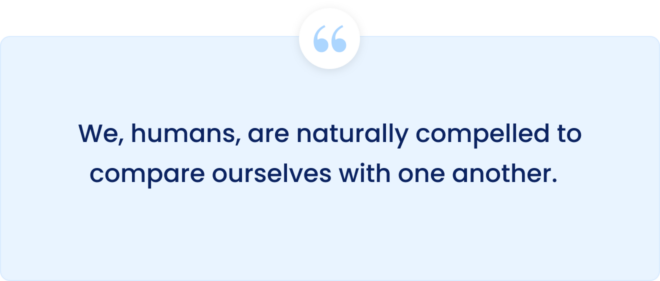
As humans, we are naturally inclined to compare ourselves to one another. We continuously evaluate people’s status, the respect and attention they receive, and any discrepancies between what we possess and what others have.
For some, this inclination serves as motivation to excel in their endeavors. However, for others, it can fuel deep-seated envy, feelings of inferiority, and frustration that may lead to covert attacks and sabotage.
To deflect envy, shifting the focus away from yourself is essential. Cultivate a sense of self-worth based on internal standards rather than incessant comparisons.
Concentrate on your personal growth and progress instead of fixating on what others possess or achieve. Develop a strong self-esteem sense arising from your accomplishments, values, and aspirations.
You can break free from the harmful cycle of comparison and envy by nurturing your inner worth. Redirect your energy towards pursuing your own goals, enhancing your skills, and positively impacting the areas that matter to you.
Remember, true fulfillment and success come from within, not from outshining others or constantly seeking validation through social comparisons. Embrace your unique journey, celebrate your individuality, and let your actions speak for themselves.
By focusing on your personal growth and self-defined standards of success, you can cultivate a fulfilling and meaningful life.
11. The Law of Grandiosity
It is inherent to human nature to contemplate various aspects of life, including our relentless desire for success and higher societal status. However, more often than not, these thoughts manifest as grandiose illusions that deviate significantly from reality.
In our pursuit of superiority, we can lose touch with the true nature of things, leading to irrational judgments and confining ourselves within the bounds of fiction. It is crucial to align our attitude toward success with our overall contributions and the value we bring to others.
Sometimes, even a tiny taste of success can intensify our inherent grandiosity to dangerous levels. The events affirm our inflated self-image. In the process, we may disregard the role that luck or the contributions of others played in our achievements.
As we disconnect from reality, we make impulsive decisions. Consequently, our success often needs to be improved. It is essential to recognize the signs of elevated boasting in ourselves and others: an unwavering certainty in the positive outcome of our plans, hypersensitivity to criticism, and a disdain for authority.
To counteract the pull of boasting, we must maintain a realistic assessment of ourselves and our limitations. We should tie any feelings of greatness to our work, accomplishments, and our positive impact on society.
By grounding ourselves in reality and embracing a humble perspective, we can guard against the pitfalls of grandiosity. We should acknowledge the interplay of luck, recognize the contributions of others, and remain open to constructive criticism.
Cultivate a healthy self-awareness and maintain a genuine connection to the world around you. Let your achievements be a testament to your hard work, dedication, and positive influence on others.
True and lasting success stems from a balanced perspective acknowledging our strengths and limitations. By valuing humility, maintaining a realistic outlook, and focusing on meaningful contributions, we can navigate our path toward success with integrity and resilience.
12. The Law of Gender Rigidity
Balancing and embracing both masculine and feminine qualities is not a simple task that can be achieved with a wave of a wand. It requires introspection and understanding how these urges influence our thought processes, making us predictable and rigid in our daily interactions.
By shedding the signs of prescribed masculine and feminine energies, we can present an authentic version of ourselves to the world. Liberated from the obligation to conform to specific behaviors based on societal expectations, we pave the way for personal growth and success.
Each of us possesses a blend of masculine and feminine qualities, influenced by genetics and the profound impact of parents of the opposite sex. However, in our quest to project a consistent societal identity, we often suppress these inherent qualities, over-identifying with the prescribed masculine or feminine roles imposed upon us. Unfortunately, this comes at a cost.
We lose valuable dimensions of our character and restrict our potential. Recognizing and reconnecting with these lost masculine or feminine traits is crucial, and gradually integrating them into our lives. In doing so, we unlock dormant creative powers and embrace a more holistic expression of our true selves.
Resisting the temptation to adhere strictly to gender roles allows us to tap into the full range of our capabilities and perspectives. It liberates us from the constraints of societal expectations and enables us to explore and embody qualities that resonate with our authentic selves.
We expand our personal and professional horizons by embracing a fluid and balanced approach to our masculine and feminine energies, fostering creativity, empathy, adaptability, and strength.
Remember, embracing and integrating masculine and feminine qualities requires self-awareness, introspection, and a willingness to challenge societal norms.
Embrace the diversity within yourself, celebrate the full spectrum of your identity, and allow your authentic self to shine. Doing so will unlock a powerful source of personal growth, fulfillment, and success.
13. The Law of Aimlessness
In the digital age, it has become increasingly important for individuals to surpass themselves to navigate temporary disappointments and setbacks continually. While a string of defeats may not always stem from a lack of direction, it often indicates the absence of a clear path forward.
Unfortunately, we tend to prioritize short-term thinking, which exposes us to potential long-term threats. This is why aimlessness can be such a dangerous game to play. It is crucial to cultivate a perspective and envision the future to overcome this sense of purposelessness.
As humans, we rely on conscious decision-making to navigate our careers and cope with life’s inevitable challenges. However, deep down, we may feel a pervasive lack of direction as we find ourselves swayed by our fluctuating moods and the opinions of others.
It is disconcerting to question how we ended up in our current jobs or places. Such drifting can lead us to dead ends, leaving us feeling unfulfilled. The key to avoiding this fate is cultivating a sense of purpose, discovering our true calling, and allowing that knowledge to guide our decisions.
Even in moments of doubt and amidst failures, we must recognize that they serve a purpose in shaping and strengthening us.
They contribute to our growth and resilience. We infuse our actions with unstoppable force by embracing a sense of purpose and direction. Our decisions become driven by unwavering energy, propelling us toward our goals.
Therefore, engaging in introspection and soul-searching is essential to uncover our true passions and aspirations. By aligning our choices with our sense of purpose, we can navigate the uncertainties of life with greater clarity and determination. Our actions become more intentional, leading us towards a future filled with fulfillment and meaning.
In a world driven by rapid technological advancements, it is crucial to transcend short-term thinking and embrace a long-term perspective.
By fostering a sense of purpose and envisioning our desired future, we empower ourselves to overcome aimlessness and steer our lives towards success and fulfillment.
14. The Law of Conformity
Individuals commonly desire to project an image of confidence and self-sufficiency, but in reality, this is often far from the truth. We tend to shape our choices and actions based on the prevailing trends and inclinations of the group.
The fear of criticism and rejection often leads us to conform to popular opinions, even if they may not align with our true beliefs. While we may yearn to break free from this collective mindset, our lives have become so deeply ingrained within them that it seems almost impossible to escape. We sacrifice our uniqueness and live in unhappiness due to this group mentality.
Within each of us lies a social personality, a facet of our character that emerges when we interact with others in group settings. In these situations, we unconsciously mimic the words and behaviors of those around us. Our thoughts become influenced by the desire to fit in and adopt the majority’s beliefs.
The collective mood of the group sways our emotions. We are more inclined to take risks and engage in irrational actions simply because everyone else is doing so. Over time, this social personality can overshadow our true selves. By listening excessively to others and conforming to their ways, we gradually lose touch with our uniqueness and ability to think independently.
The solution lies in developing self-awareness and cultivating a deeper understanding of the transformations within us when we are part of a group. With this heightened intelligence, we can become skilled social actors capable of fitting in and cooperating effectively with others while maintaining our independence and rationality.
We can consciously navigate group dynamics without losing sight of our individuality by being aware of the subtle shifts in our thoughts, emotions, and behaviors.
It is essential to cultivate the strength to stand firm in our convictions, even in the face of opposition or dissent. Embracing our uniqueness and allowing our true selves to shine requires courage and self-assurance.
By honoring our individuality and staying true to our values, we can transcend the limitations of the group mindset and find a path to genuine fulfillment and happiness.
15. The Law of Fickleness
When you assume the role of a leader, be prepared for the harsh treatment that often accompanies it. Every mistake you make will be seen as an opportunity for someone else to seize power and take your place. It is crucial to stand your ground and withstand these attacks.
Your authority will be questioned in the process, and your status may come under scrutiny. As a leader with legitimate power, guiding others in recognizing you as their rightful leader is essential. Skillful leaders understand this dynamic and proactively navigate its side effects.
While leadership styles may evolve, one thing remains constant: people’s ambivalence towards those in power. They desire guidance and direction, yet they also crave freedom and prosperity without making sacrifices.
When you lead a group, be aware that people are poised to turn against you at the first sign of weakness or setback. Do not succumb to the temptation of conforming to the prevailing biases, thinking that gaining loyalty requires appearing equal or friendly to everyone.
Such actions will only breed doubt about your strength, evoke suspicion about your motives, and elicit hidden contempt. If you aspire to lead, it is vital to master the art of leadership early on in your life. Once you have earned people’s trust, they will remain loyal to you as their leader, regardless of the challenging circumstances.
16. The Law of Aggression
The world craves your energy, and individuals may employ various tactics to gain an advantage over you. They seek to satisfy their desires by outmaneuvering and asserting superiority over others. Navigating such dynamics requires expertise and composure.
By assuming the role of an observer amidst these aggressive maneuvers, you can maintain your ground even when faced with challenging situations. Passive-aggressive individuals can be easily identified if you are familiar with the cues associated with their behavior.
It’s important to note that aggressive energy itself is not inherently harmful. When channeled effectively, it can fuel your determination and resilience, enabling you to persevere despite temporary setbacks.
Beneath the veneer of politeness and civility, people harbor frustrations and unfulfilled desires. To navigate this landscape, you must elevate yourself to become a keen observer of these suppressed aggressive tendencies in others. Pay special attention to both chronic aggressors and passive aggressors within your midst.
They rely on provoking fear and anger and clouding your thinking. Refuse to grant them this power. As for your aggressive energy, learn to harness and direct it towards productive purposes. Stand up for yourself, tackle problems with unwavering determination, and pursue your goals relentlessly.
17. The Law of Generational Myopia
The generation gap is a tangible reality as each new generation forges its distinct values and priorities. This process shapes the behavior of its members and exerts a significant influence on the world. However, in this pursuit, we often sacrifice our innate qualities and stifle our creativity without questioning these notions.
Your birth into a specific generation is pivotal in shaping your identity in ways you may not fully comprehend. Your generation seeks to differentiate itself from the previous one and establish a new paradigm for the world.
Your responsibility lies in profoundly understanding this influential force that molds who you are and how you perceive the world. By doing so, you become the catalyst for anticipating and setting the trends that resonate with the aspirations of your generation.
18. The Law of Death Denial
Death is an undeniable truth that touches every individual. Embracing our existence’s unpredictable and fleeting nature can be a profound tool.
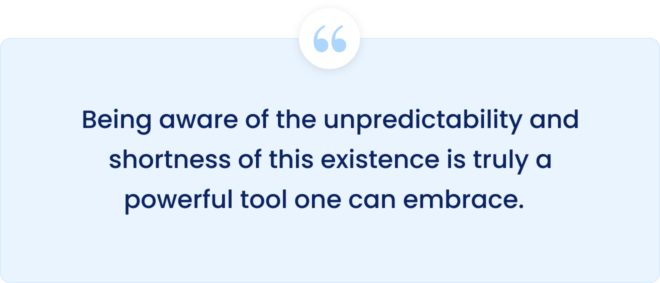
It instills within us a sense of urgency that propels our daily endeavors. By training our minds to think and act with this awareness, we can expedite our progress and achieve results more swiftly.
Many of us spend our lives evading the contemplation of death. However, rather than avoiding it, we should keep its inevitability in constant awareness. Understanding the brevity of life imbues us with purpose and a heightened sense of urgency to actualize our aspirations.
By training ourselves to confront and accept this reality, we better understand the setbacks, separations, and crises that arise. It grants us a sense of perspective, enabling us to discern what truly matters in our fleeting existence. Instead of seeking superiority and division, we should recognize the shared mortality that unites and equalizes us all.
Conclusion
Critical lessons from “The Laws Of Human Nature.”
- Tackle the narrow-minded aspects – It’s difficult to shift your mindset when certain concepts are deeply rooted in your heart. All whining aside, it’s a process of utmost significance. By expanding your horizons, you’ll surely prosper more than you ever thought possible.
- Use persuasion only as a last resort – Despite what others have taught you, the number of people who love pushy persuaders and influencers can be counted on one’s fingers. You have to respect one’s opinion before you decide to submit yours. Don’t act as if you know everything!
- Define your goals – Although we try to refrain from sharing cliché tips, this one is based purely on merit. How can you reach your destination without knowing your bearings? It’s a simple process that allows you to move confidently and withstand potential threats.
The Laws of Human Nature Book Review
“The Laws of Human Nature” by Robert Greene is a captivating exploration of human behavior, revealing the hidden forces that shape our actions and interactions.
Greene combines historical examples, psychological insights, and practical advice to dissect the complexities of human nature.
His meticulous analysis of social dynamics, power struggles, and the intricacies of human psychology offers valuable lessons on how to navigate relationships, understand motivations, and enhance self-awareness.
With rich storytelling and thought-provoking anecdotes, Greene presents a compelling case for mastering the laws that govern human behavior.
This book is an enlightening guide to understanding ourselves and others, empowering readers to forge deeper connections and achieve personal growth.
Thank You.
Contents






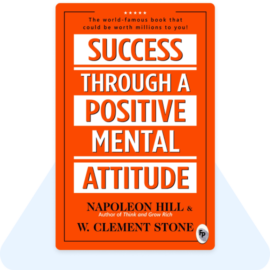
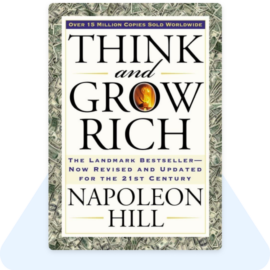

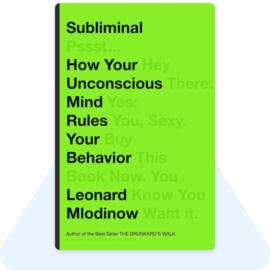




Sir pls summeries in simple language tank you